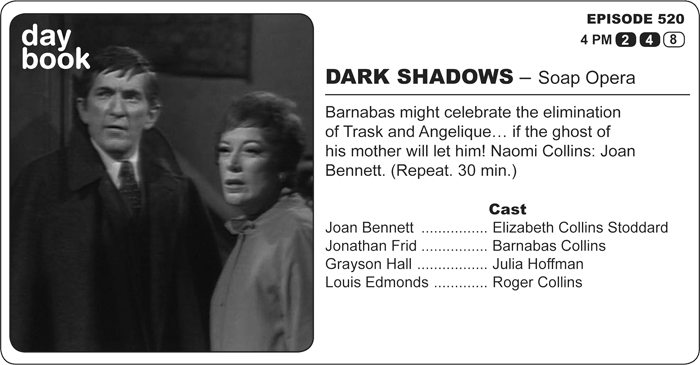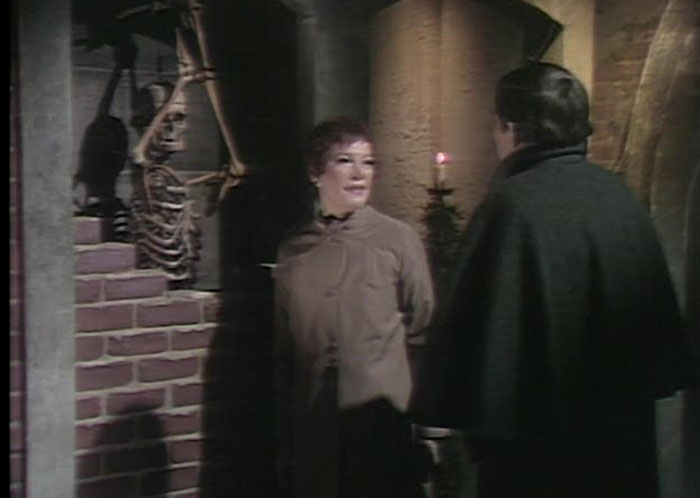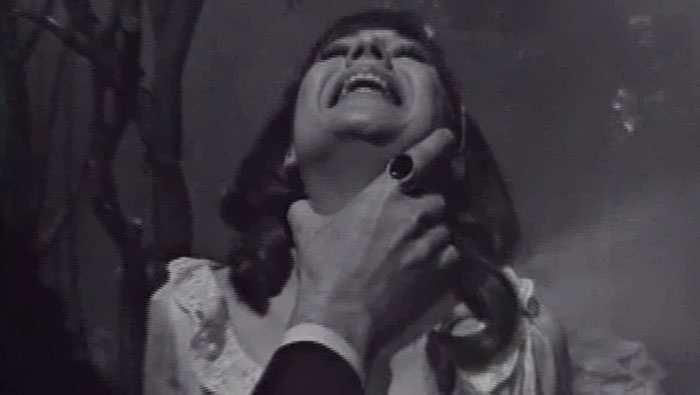
By PATRICK McCRAY
Taped on this day in 1967: Episode 248
When Barnabas woos Maggie with a tour of Collinsport’s cozier hideaways, will Willie provide a rude awakening? Maggie Evans: Kathryn Leigh Scott. (Repeat; 30 min.)
Barnabas punishes Maggie with an overday stay in a coffin. When she returns to the Old House, her true personality seems to permanently reemerge.
We’ve been teased for long enough. Maggie Evans knows that she’s Maggie Evans, but how are we supposed to feel?
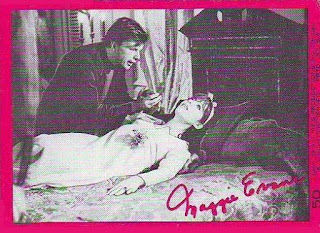
If the original viewers of the show were cheering her on, the character of Barnabas would have had no future. If those familiar with the show say they are cheering her on, they aren’t that familiar with it after all.
This is the crux of the show’s most morally challenging storyline, but it’s not morally challenging for the characters. The compass there is clear. The challenge is for you, the viewer. Do you side with the character you know is destined to save the future, motivated by love and desperation, despite knowing that he is wrong? Or do you side with the brave, tortured woman you know will be free in time? It’s an ugly choice. If I were you, I wouldn’t even dignify the question. The show is relentless in confronting us with it, anyway, even though we may equivocate with, “neither” or, “both” or, “Are you crazy?”
It’s borrowing a page from Vertigo, and in that, too, we tacitly approve of extreme behavior by men toward women because we know there is a larger purpose. The difference is that Judy is not only responsible for Scotty’s pain, but (through complicity) the murder of Madeline. And Jimmy Stewart is not an undead hemovore (in that movie, anyway). With Barnabas, it’s more complicated. Maybe. Both men are driven by love. Both men are forcibly improving class status. And both men suspect that the true object of their affections lurks within. You realize that it’s a dark Cinderella, right?
There are different and theoretically forbidden dimensions to this entire topic for both men and women. Yeah, it’s clear why it’s abhorrent. Now, let’s talk about why it’s appealing, anyway. Not okay, but strangely appealing.
For women, let’s talk about the appeal first from what’s not going on. There’s no rape, and I can’t emphasize the power of that. Despite everything that’s going on, sexual violation isn’t one of them. In fact, there’s not even the hint. This is a driven and insistent and personal desire that involves who Maggie/Josette truly is rather than what she can do. Sex is fungible. Josette is not. With that off the table, the idea of this crime is one of the most flattering in the arena of the totally reprehensible. An all-powerful uber-patriarch comes to life and has only one focus: to love. Unlike Laura, there is no sacrifice involved. Yes, yes, Maggie will become one of the living dead, but in a very attractive, powerful, immortal way and, well, you gotta die sometime.
The prime demographic here (at this point in the run) is women home at four in the afternoon every weekday. I don’t need a Betty Friedan on my shoulder to both dislocate it and tell me that there’s a good chance this viewer might feel marginalized and unfulfilled. As much as Maggie screams for pop-pop-pop, she kind of has to. The story would be over if she didn’t. No one wants their identity replaced, but from the objective view of the audience, there are worse trades given the Byronic pining of her “host.” Josette sounds pretty great, and Maggie is a character destined for exactly the fate of many viewers… the beleaguered housewife of a working-class barfly who comes home every night stinking of dead shellfish and Kools. Go to bed with Joe Haskell and wake up with Curly Joe DeRita.
It’s quite the briar patch over at the Old House, and other than forgetting the forgettable minutiae of her former life, there doesn’t seem to be a lot of privation here. Yes, lack of air conditioning, but it’s Maine, you know?
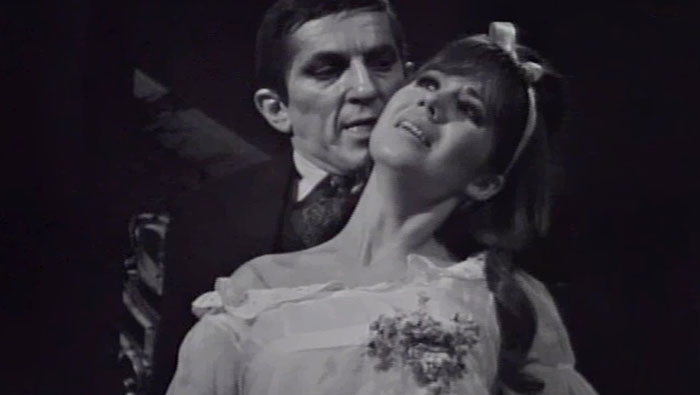
For male viewers? I’m not sure there were many back then. But it’s clear that, while Barnabas’ desperate methods are cruel, his motives are not. Jonathan Frid projected a pain, melancholy, and lingering, unresolved desire better than any other actor in the medium. We have been there. I’m not going to say “incel,” because of the terrible baggage that perfectly decent descriptor (coined as a self-reference by a woman, I am led to believe) immediately gave itself, but… he didn’t explicitly ask for this. If a grown man is sitting around watching Dark Shadows, I can tell you that either his dance card is empty or he certainly knows what an empty one looks like. And while no rational human would contemplate kidnapping and brainwashing, Barnabas is s’darn earnest that we know that his motives are pure and motivated by a sense of profound loss, one that even the mighty, 1795 storyline strains itself to justify.
The fact that Barnabas loses her repeatedly in this, concluding in the shattering realization that he has caused the (supposed) death of another innocent person, is the ultimate comeuppance. His crime? The desire to not be alone. Yes, a phallocentric quest for power, but power over what was lost. Power to undo a crime of jealousy. And not Barnabas’.
If it sounds like I’m defending the undefendable, I am. But so is the show, because this man transforms into its hero, and we all kept watching. The reasons run deep.
This episode hit the airwaves on June 7, 1967.


